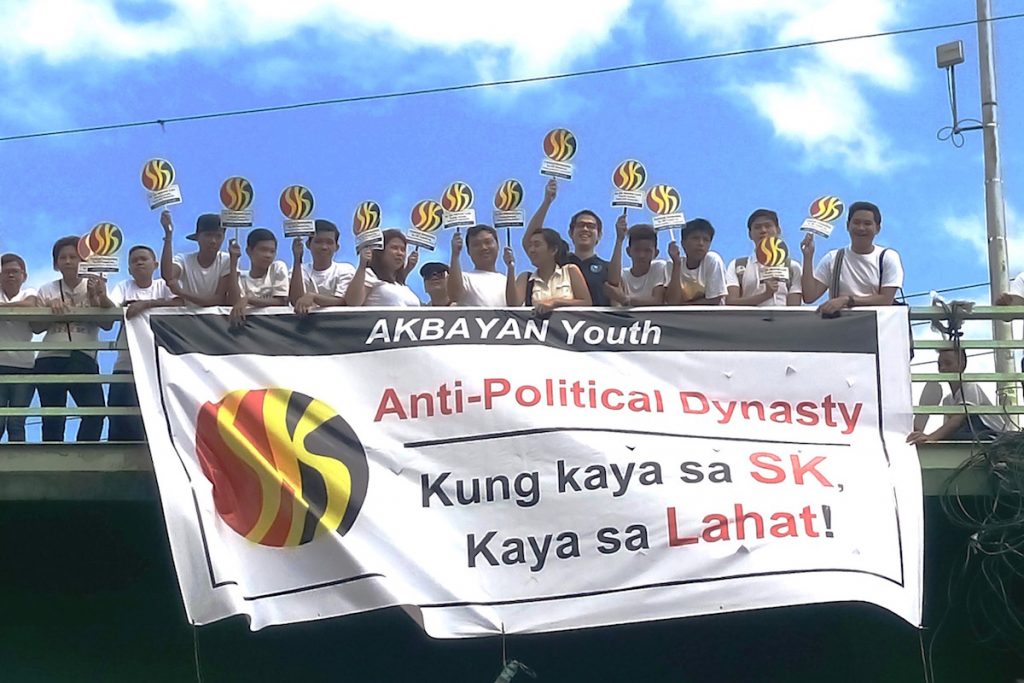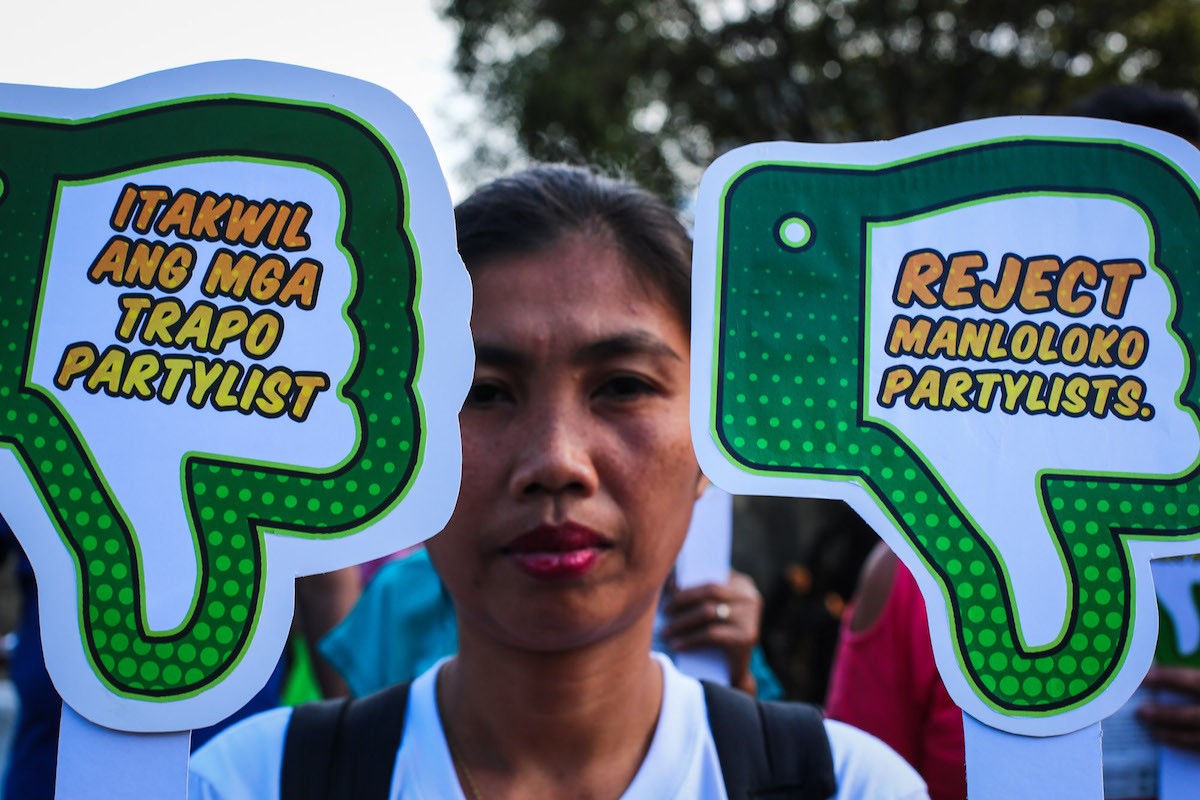“In a democracy, it is the inherent right of a person to run and be elcted. The positions are not appointed.”
Those are the words of an incumbent lawmaker who is part of an Interagency Task Force on Constitutional Reforms. He is also the brother of the current governor of a northern province in the Philippines.
The lawmaker is not alone in taking such a stand. His statement puts in stark relief what’s wrong with political culture in the Philippines, where entrenched political families try with might and main to perpetuate their rule.
Among those opposed to the dominance of political dynasties in the Philippines are the country’s Catholic bishops. As far back as 2013, they had already issued a strong pastoral statement denouncing political dynasties.
The 120-strong Catholic Bishops’ Conference of the Philippines said then that the spread of political dynasties was one of a “long litany of storms” facing the country amid violent natural disasters.
The church hierarchy said they were offended that lawmakers themselves had defied the mandate of the Constitution to push for an enabling law that would ban such dynasties, which they stressed “breed corruption and ineptitude.”
“Like monopolies in business, monopolies in politics limit the entry [of fresh blood] that can bring in new ideas and offer better services,” the bishops said.
Last year, as the country prepared for midterm elections, Davao Archbishop Romulo Valles, president of the bishops’ conference, urged the electorate “to elect public officials who are principled, courageous, and who have the common good as their main concern and not their own political interests.”
With politicians already gearing up this early for the crucial 2022 presidential election, expect both old and new political dynasties to waste no time in trying to outsmart and out-hustle possible opponents.
Will the electorate reject political dynasties in 2022? That’s highly unlikely, given the current political landscape where the legislature is composed mostly of politicians the Catholic bishops have warned us all about.
But the Church, civil society, and progressive politicians should exert pressure on the legislature to pass the bill prohibiting political dynasties, as this would pave the way for participatory democracy to flourish.
Giving full play to democracy is precisely what the 1987 Philippine Constitution calls for: “The state shall guarantee equal access to opportunities for public service, and prohibit political dynasties as may be defined by law.”
The basic premise of this provision is that in a democracy, everyone is given the opportunity to seek public office, provided they meet certain basic requirements, such as age, residency, and an appropriate level of literacy.

But in practice, elections in the Philippines require substantial financial resources. Money — lots of it — is needed to launch a decent campaign and reach voters in far-flung areas. The lack of adequate resources prevents ordinary citizens who are otherwise qualified to run, honest and competent, and can contribute meaningfully to nation-building, from running for public office.
The constitutional prohibition on political dynasties, while logical and reasonable, is self-defeating, as it leaves the matter of crafting an enabling law on those already holding incumbent positions. Yes, including members of political dynasties who stand to lose their power and influence once an anti-political dynasty law is passed.
Political dynasties rule the roost in many parts of the country. They can be found at both the national and local levels. They simply do not want to give up the political and economic power they wield over their constituencies.
The case of the Ampatuan family in Maguindanao province in Mindanao island is telling. They represent an extreme example of a political dynasty seeking to maintain power through the tried-and-tested formula of “guns, goons and gold.”
The Ampatuan patriarch was governor of the province for many years, while some relatives became mayors in certain municipalities. A son became the governor of the Autonomous Region in Muslim Mindanao covering several provinces and cities.
When a political rival from Maguindanao wanted to file his candidacy for governor in 2010, the Ampatuans moved to eliminate him by plotting the infamous Maguindanao massacre, where 58 people were killed in November 2009, including 32 journalists.
The case took more than a decade to be decided by the courts, which found several Ampatuans guilty of murder and sentenced them to life in prison without the possibility of parole.
But we need not look far and wide to find that the most powerful and visible political dynasty at present is in Davao City in Mindanao.
President Rodrigo Duterte ruled Davao City as mayor for more than two decades until he decided to run for the highest elected office in 2016. His two decades as city mayor was interrupted only when his daughter Sara took over his post.
When Duterte became president, Sara assumed the mayorship of the city, with her brother Paolo as vice mayor. Paolo has since become a member of the House of Representatives, while another brother, Sebastian, is the vice mayor.
It’s all in the family.
That Davao City is dominated by one family is likely to continue in the years ahead, as rabid Duterte supporters are even raising the possibility that Sara, a lawyer like her father, should take a stab at the presidency in 2022.
Should that happen, then the constitutional prohibition on political dynasties in the Philippines will ring hollow, as it would be torn to shreds by vested interests.
One argument for keeping political dynasties is that there are “good” political dynasties and well as “bad” ones. Hence, the electorate must distinguish between the two and vote the bad ones out.
That is easier said than done, however, as the majority of the electorate votes not on the basis of the integrity and competence of candidates but on mere popularity.
The Duterte administration wants the country to shift from a unitary to a federal system of government. The rationale for this is to allow the various regions to become self-governing states with the primary responsibility of overseeing economic and social development.

But the fear is that federalism would only strengthen the hold of political dynasties in the country. Hence, the heightened clamor for the legislature to prohibit all political dynasties, whether good or bad, as this would encourage participatory democracy and prevent continued elite rule that, to this day, has kept poverty at unmanageable levels.
Ernesto M. Hilario writes on political and social justice issues for various publications in the Philippines. The views and opinions expressed in this article are those of the author and do not necessarily reflect the official editorial position of LiCAS.news.







